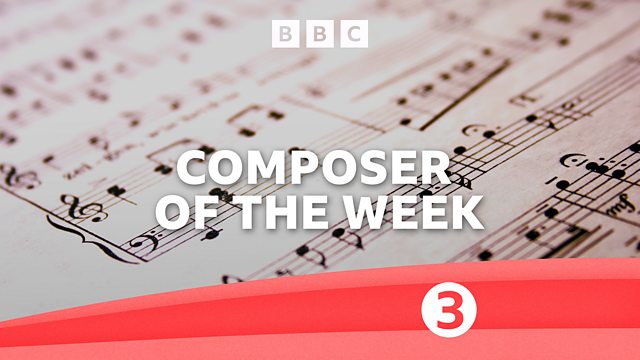
Musical beginnings in Dublin
Donald Macleod explores Stanford’s musical development in Dublin and Cambridge, and his fascination with opera.
Donald Macleod explores Stanford’s musical development in Dublin and Cambridge, and his fascination with opera.
Marking the centenary of his death, Composer of the Week explores the remarkable life and music of Sir Charles Villiers Stanford. Stanford was one of the leading musicians of his generation and, along with Parry and Mackenzie, he was one of the main protagonists in Britain’s musical renaissance at the end of the 19th century. Born in Dublin, Stanford rose to the very top of the British music scene, as both a conductor and composer. He also maintained strong links to Germany, following his studies in Leipzig and Berlin. Stanford’s works were popular in Europe, as well as Britain, with conductors such as Hans Richter promoting his music. Today, Stanford is largely remembered for his sacred works, however his prolific output covers most genres and he had a particular passion for opera. He was an influential teacher at the Royal College of Music and Cambridge University; many future musical luminaries passed through his classes, including Gustav Holst, Ralph Vaughan Williams, Rebecca Clarke and Samuel Coleridge-Taylor. Stanford was a tremendous force for good in British music, and in honour of his contribution to British culture, his ashes are interred in Westminster Abbey close to the remains of Henry Purcell.
Stanford grew up in a very musical family, and in this programme, Donald Macleod and Stanford biographer, Jeremy Dibble, explore Stanford’s early years and musical development. They follow Stanford from Dublin to Cambridge, where he became organ scholar at Queen’s College in 1870, and assistant conductor for the Cambridge University Music Society. They also delve into the origins of Stanford’s ambition to be an opera composer, writing stage works in English.
The Bluebird, Op 119 No 3 (excerpt)
Gabrieli Consort
Paul McCreesh, director
Three Intermezzi, Op 13 No 1 (Allegretto scherzando)
Robert Plane, clarinet
Benjamin Frith, piano
The Resurrection, Op 5
Robert Murray, tenor
The Bach Choir
Bournemouth Symphony Orchestra
David Hill, conductor
Symphony No 1 (Scherzo)
Ulster Orchestra
Vernon Handley, conductor
The Veiled Prophet (Act 2 Love Duet)
Sinéad Campbell Wallace (Zelica), soprano
Gavan Ring (Azim), tenor
Wexford Festival Opera Orchestra
David Brophy, conductor
Service in B flat major, Op 10 (Magnificat)
Choir of Winchester Cathedral
Waynflete Singers
Timothy Byram-Wigfield, organ
Bournemouth Symphony Orchestra
David Hill, conductor
Symphony No 2 ‘Elegiac’ (Lento espressivo)
Bournemouth Symphony Orchestra
David Lloyd-Jones, conductor
Produced by Luke Whitlock
Last on
More episodes
Previous
You are at the first episode
Music Played
-
![]()
Charles Villiers Stanford
The Bluebird, Op 119 No 3 (excerpt)
Ensemble: Gabrieli Consort. Director: Paul McCreesh.- Signum Classics : SIGCD490.
- Signum Classics.
- 1.
-
![]()
Charles Villiers Stanford
Three Intermezzi, Op 13 No 1 (Allegretto scherzando)
Performer: Robert Plane. Performer: Benjamin Frith.- NAXOS : 8.-570416.
- NAXOS.
- 10.
-
![]()
Charles Villiers Stanford
The Resurrection, Op 5
Singer: Robert Murray. Choir: The Bach Choir. Orchestra: Bournemouth Symphony Orchestra. Conductor: David Hill.- NAXOS.
-
![]()
Charles Villiers Stanford
Symphony No 1 (Scherzo)
Orchestra: Ulster Orchestra. Conductor: Vernon Handley.- CHANDOS : CHAN-9279-82.
- CHANDOS.
- 2.
-
![]()
Charles Villiers Stanford
The Veiled Prophet (Act 2 Love Duet)
Singer: Sinéad Campbell Wallace. Singer: Gavan Ring. Orchestra: Wexford Opera House Orchestra. Conductor: David Brophy. -
![]()
Charles Villiers Stanford
Service in B flat major, Op 10 (Magnificat)
Performer: Timothy Byram-Wigfield. Choir: Winchester Cathedral Choir. Choir: Waynflete Singers. Orchestra: Bournemouth Symphony Orchestra. Conductor: David Hill.- DECCA : 470-384-2.
- DECCA.
- 9.
-
![]()
Charles Villiers Stanford
Symphony No 2 'Elegiac' (Lento espressivo)
Orchestra: Bournemouth Symphony Orchestra. Conductor: David Lloyd-Jones.- NAXOS : 8.-570289.
- NAXOS.
- 2.
Broadcast
- Mon 25 Mar 2024 12:00����ý Radio 3
Beethoven Unleashed – the box set
What was really wrong with Beethoven?
Composers A to Z
Who knew? Five eye-opening stories from Composer of the Week
Five reasons why we love Parry's Jerusalem
What is the strange power of Jerusalem which makes strong men weep?
A man out of time – why Parry's music and ideas were at odds with his image...
The composer of Jerusalem was very far from the conservative figure his image suggests.
Composer Help Page
Find resources and contacts for composers from within the classical music industry.





